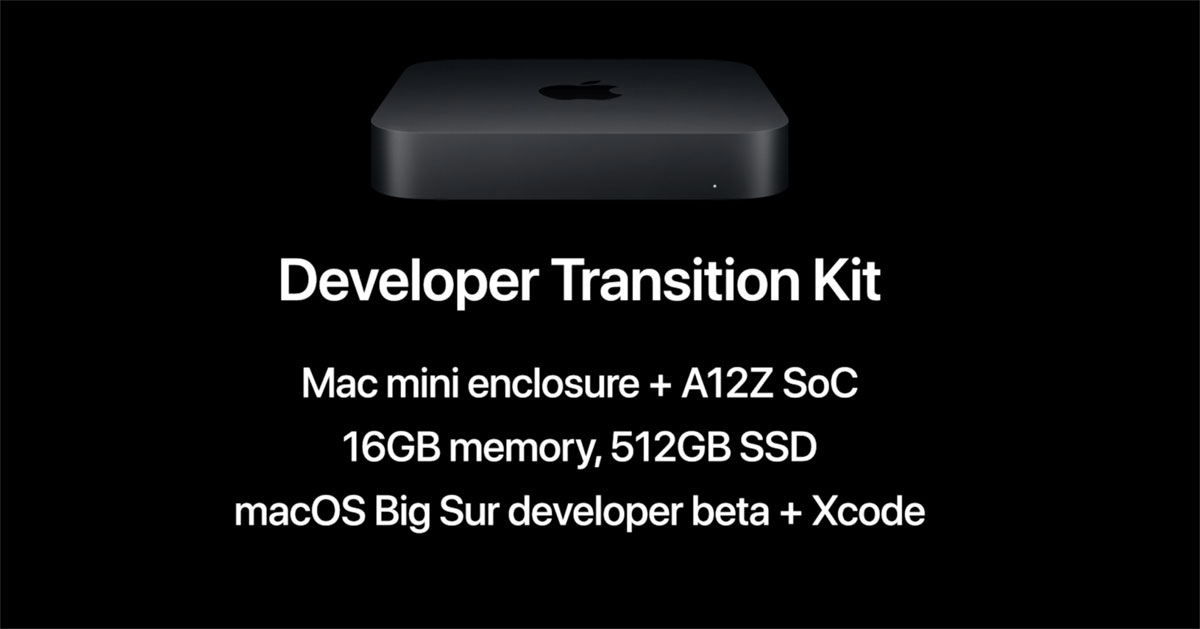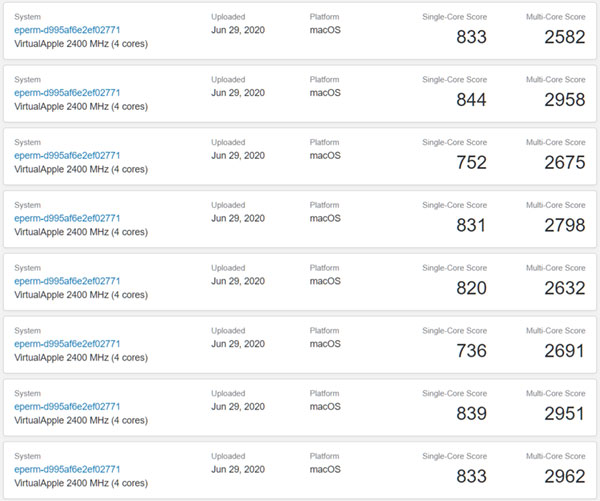Apple’s transition away from Intel Macs and towards machines built on the company’s own chips is now official, and we’re expecting Apple silicon to power Macs before the end of the year.
Some developers have already begun to receive their Developer Transition Kits, machines meant to allow them to create apps ready for the new architecture. And, sure enough, they’ve been benchmarked.

The fact that we can see benchmark reports online is odd considering Apple expressily told developers not to run benchmarks at all, let alone have the reports appear online. We doubt Apple will be too happy right about now.
That aside, the new benchmarks show macOS 11 Big Sur running on an Apple A12Z chip inside a Mac mini chassis. That’s the same chip that powers the iPad Pro and we’d expect decent performance. And we get it. Sort of.
The numbers we’re seeing – single-core scores of around 800 and multi-core scores of around 2700 seem to be the norm – match a MacBook Air for the most part But it’s important to remember that none of this really means a great deal.

The reason? The benchmarks were run using Geekbench, a utility that isn’t built for the new ARM-based Macs. That means that it will have been running via Rosetta 2, Apple’s emulation system for x86 code. That, surely, means there was a performance hit going on which in turn makes these results somewhat iffy. They’re a guide, sure. But I’d expect “real” Macs running Apple silicon to perform even better. Especially running native apps.
As a case in point, Geekbench reports that the A12Z has four CPU cores whereas it really has eight – four performance and four efficiency cores. Let’s wait until everything’s ready to be tested properly, shall we?
You may also like to check out:
- Download iOS 14 Beta 1 IPSW Links And Install On iPhone 11, Pro, XS Max, X, XR, 8, 7, Plus, 6s, iPad, iPod [Tutorial]
- iOS 14 Beta 1 Download IPSW Links, OTA Profile And iPadOS 14 Beta 1 For iPhone And iPad
- iOS 14 Beta 1 Profile File Download Without Dev Account, Here’s How
- iOS 14 Hidden Features On iPhone And iPad That You Don’t Know About [List]
- Download: iOS 13.6 Beta 2 IPSW Links, OTA Profile File, Beta 2 Of iPadOS 13.6 Released
- iOS 13.5.1 Downgrade No Longer Possible After Apple Stops Signing iOS 13.5 Jailbreak Firmware
- Jailbreak iOS 13.5.1 Using Checkra1n, Here’s How [Video Tutorial]
- Jailbreak iOS 13.5 On iPhone 11, Pro Max, SE, iPad Pro, More Using Unc0ver 5.0.0 [Tutorial]
- Download: iOS 13.5.1 IPSW Links, OTA Update Released For iPhone And iPad
- Jailbreak iOS 13.5 Without Or No Computer, Here’s How
- Apple Watch ECG App Hack: Enable Outside US In Unsupported Country On Series 5 & 4 Without Jailbreak
You can follow us on Twitter, or Instagram, and even like our Facebook page to keep yourself updated on all the latest from Microsoft, Google, Apple, and the Web.

